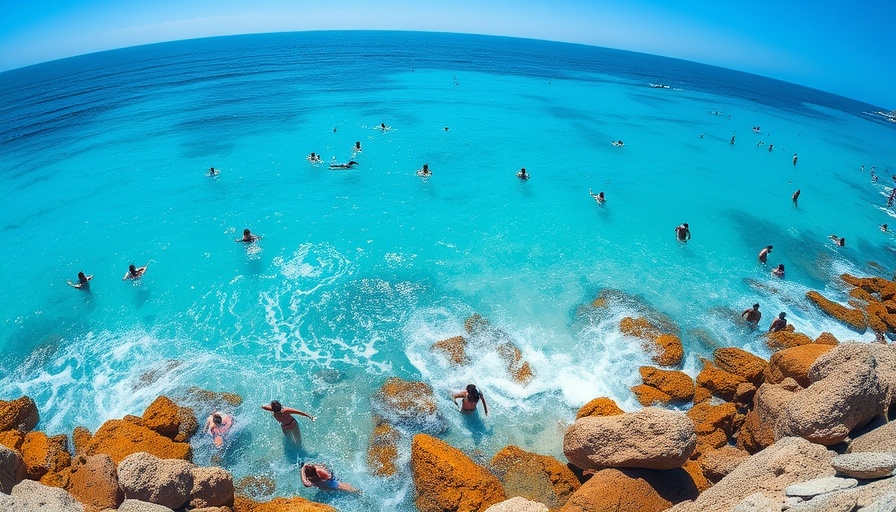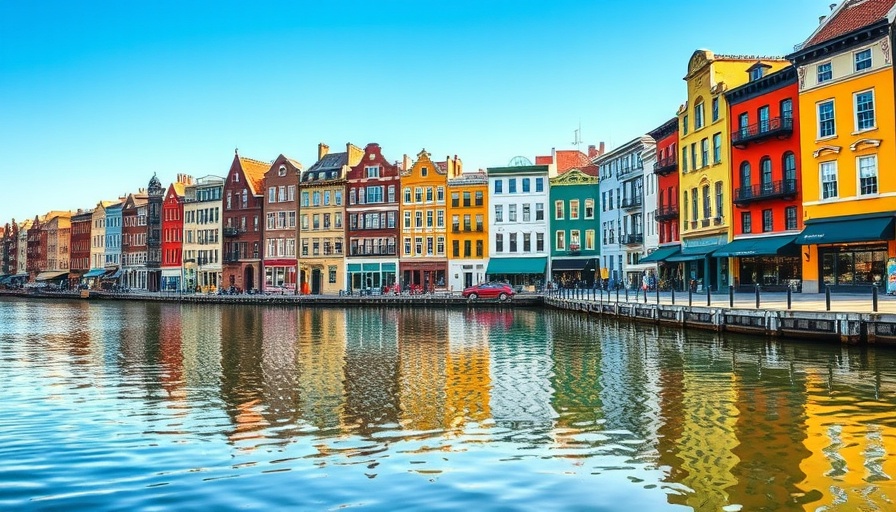
Explore Europe’s Cleanest Swimming Spots This Summer
Europe continues to be a leader in providing some of the world’s cleanest bathing waters, with recent reports indicating that over 85% of monitored sites received an "excellent" rating for water quality. In light of the growing trend for sustainable travel, these results are not only a boon for swimmers but also an encouraging sign for eco-conscious tourists looking to enjoy vacation time in a responsible manner.
Southern Europe Shines Bright
Among the stars of this year's water quality report, Cyprus takes the lead with an impressive 99.2% of its swimming sites rated as excellent. Following closely are Bulgaria, Greece, and Croatia, bringing the allure of sun-soaked shores and pristine waters to the forefront of travel destinations. This consistent performance not only reflects the natural beauty of these countries but also their commitment to maintaining high environmental standards, important for potential visitors who prioritize sustainability.
The Unexpected Excellence of Austria
The landlocked nation of Austria has surprised many by securing a top position among countries for bathing water quality, showing that beautiful swimming spots aren’t confined to coastal areas. With 95.8% of its rivers and lakes rated as excellent, Austria stands as a testament to the high standards of eco-tourism and the promotion of wellness retreats amidst its stunning landscapes. Travelers seeking green resorts will find an array of eco-friendly options nestled near Austria's clear lakes.
Eastern Europe: The Hidden Gems
While the majority of Eastern Europe battles with lower ratings for water quality, notable improvements are being made. Romania's remarkable jump from 70% to 84% of its swimming sites receiving excellent ratings is one of the largest advancements noted in the report. This transformation reflects efforts to enhance environmental standards and could lead to increased interest from travelers seeking a destination with emerging appeal. Additionally, Lithuania’s strong performance encourages a renaissance in Eastern European areas previously overlooked by the eco-tourism wave.
Understanding the Numbers: A Deeper Dive
Though some countries like Poland and Hungary reported lower than desirable percentages of excellent swimming spots, it’s important to recognize the unclassified sites, which could skew perceptions of overall water quality. Understanding these figures can help potential visitors to make informed decisions about where to swim and enjoy a sustainable holiday. Countries with substantial unclassified locations may have higher percentages of excellent waters than shown, creating an opportunity for further exploration.
Making the Most of Your Swim: Sustainable Travel Tips
Travelers looking to swim in these clean waters can enhance their experience by following a few sustainable travel practices. Opt for eco-friendly accommodations that are committed to minimizing their environmental impact. Participate in local conservation efforts when possible, which can range from beach clean-ups to supporting local businesses that prioritize sustainability. Lastly, consider traveling during off-peak seasons to help reduce overcrowding at popular sites and protect fragile ecosystems.
Taking the Plunge into Clean Waters
This summer, Europe’s beaches and lakes offer not only the promise of a refreshing swim but also an invitation to enjoy these environments responsibly. With a growing awareness of sustainability in travel and leisure, every decision counts in maintaining the beauty and cleanliness of these beloved locations.
As we assess the quality of water and seek sustainable travel experiences, let’s embrace the opportunity to explore the world around us while caring for it. European destinations shine brightly on the map of eco-friendly tourism, and with each splash in clean waters, we contribute to a healthier planet.
For our readers inspired to discover these regions firsthand, we encourage you to plan your visit now, considering your impact as a traveler and the importance of sustaining our beautiful natural resources.
 Add Row
Add Row  Add
Add 




Write A Comment